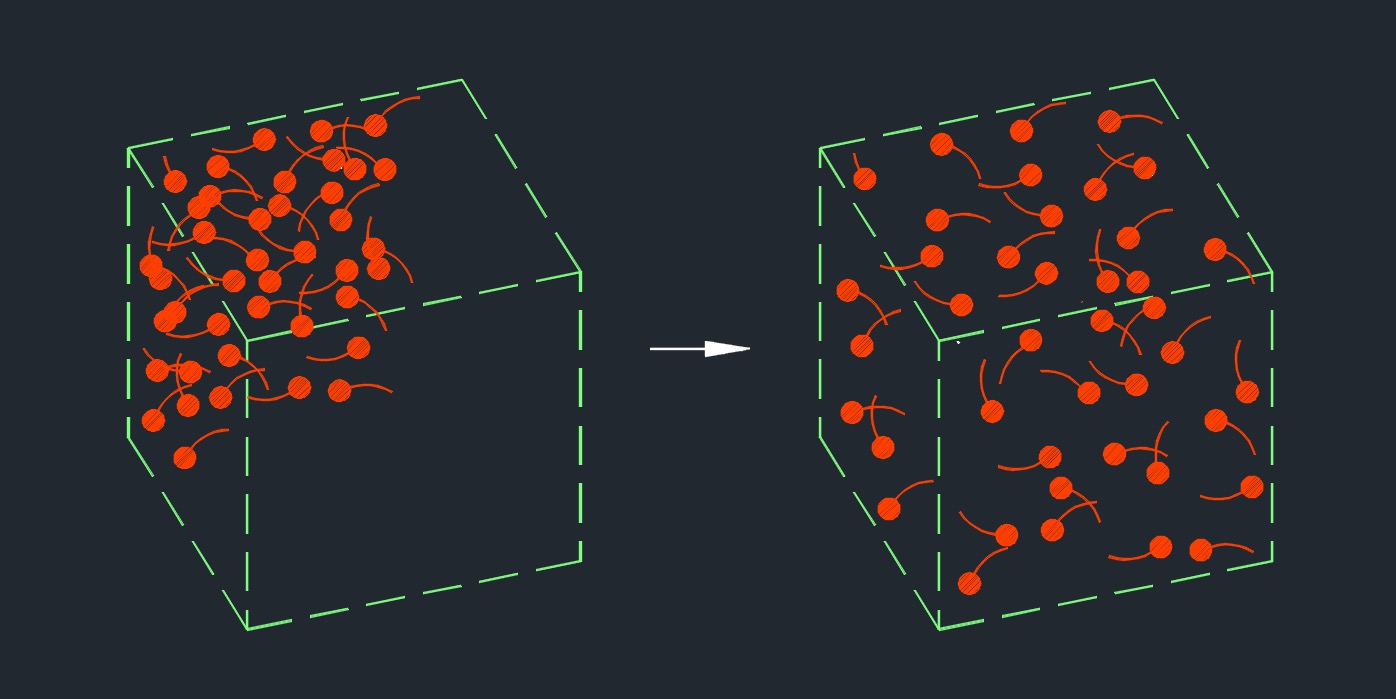Thermal Diffusivity
Thermal Diffusivity Formula |
||
|
\( \alpha \;=\; \dfrac{ k }{ \rho \cdot Q } \) (Thermal Diffusivity) \( k \;=\; \alpha \cdot \rho \cdot Q \) \( \rho \;=\; \dfrac{ k }{ \alpha \cdot Q } \) \( Q \;=\; \dfrac{ k }{ \alpha \cdot \rho } \) |
||
| Symbol | English | Metric |
| \( \alpha \) (Greek symbol alpha) = Thermal Diffusivity | \(ft^2 \;/\; sec\) | \(m^2 \;/\; s\) |
| \( k \) = Thermal Conductivity | \(Btu \;/\; hr-ft-F\) | \(W \;/\; m-K\) |
| \( \rho \) (Greek symbol rho) = Density | \(lbm \;/\; ft^3\) | \(kg \;/\; m^3\) |
| \( Q \) = Specific Heat Capacity | \(Btu \;/\;lbm-F\) | \(kJ \;/\; kg-K\) |
Thermal diffusivity, abbreviated as \(\alpha\) (Greek symbol alpha), is a measure of the transient thermal reaction of a material to a change in temperature. It is a material property that describes how quickly heat can propagate through a substance. It quantifies the ability of a material to conduct heat relative to its ability to store thermal energy.

Thermal diffusivity provides information about how quickly temperature changes can propagate within a material. A higher thermal diffusivity means that heat can spread rapidly through the material, while a lower thermal diffusivity indicates slower heat propagation. Materials with high thermal conductivity and low heat capacity tend to have high thermal diffusivity, meaning they can quickly conduct and distribute heat. Examples of materials with high thermal diffusivity include metals like copper and aluminum. On the other hand, materials with low thermal conductivity and high heat capacity have low thermal diffusivity, indicating slower heat transfer. Examples of materials with low thermal diffusivity include insulation materials like fiberglass or ceramics.
Thermal diffusivity is an important parameter in many fields, including heat transfer analysis, materials science, and engineering. It plays a crucial role in understanding and predicting heat conduction behavior in various applications, such as designing heat exchangers, optimizing thermal insulation, and analyzing thermal response in structures and materials.

